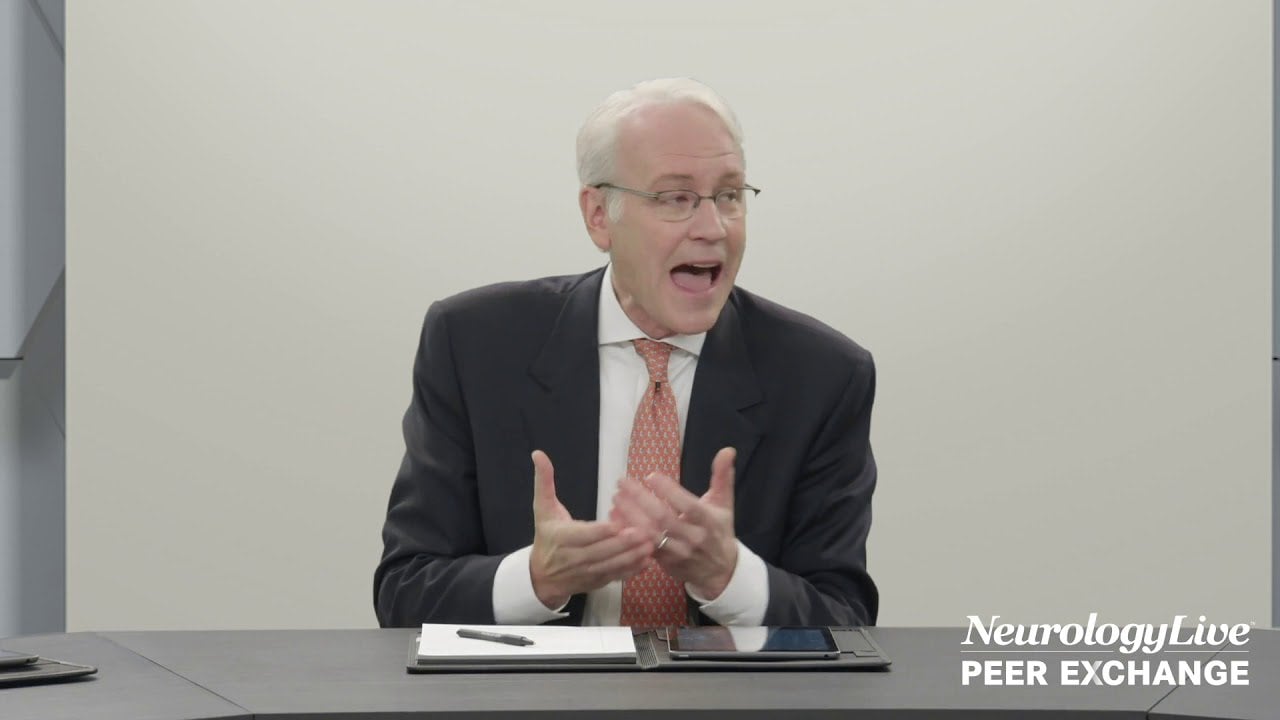Pathophysiology And Risk Factors For The Development Of Off Episodes In Parkinsons Disease
C Warren OlanowDepartment of Neurology, Icahn School of Medicine at Mount Sinai, New York, NY, USA
Levodopa has been used as a treatment for PD for 50 years and remains the most effective therapy available. There are, however, limitations with levodopa, including a lack of control of non-dopaminergic features of PD such as falls and dementia, failure to stop disease progression, and the development of motor complications in the majority of patients.27 Risk factors for the development of these complications have been studied in both open-label and long-term prospective studies which indicate that both OFF time and dyskinesia are associated with young age, high doses of levodopa, and disease severity.8,28 Among these, levodopa dose is the one factor that can be controlled by physicians.
Analyses in this study further indicate that female gender and lower weight correlate with the development of motor complications this likely reflects the same dose resulting in higher plasma levels in these individuals.28 Recommendations arising from this work suggest that physicians should use the lowest levodopa dose that provides satisfactory symptom control, should consider alternative medications to minimize levodopa dose, and should pay particular attention to the dose given to young women. It may also be necessary to consider patient weight and prescribe the dose on a mg/kg basis.
Help Your Patients Uncover The Troublesome Symptoms Of Off Periods9
Both physicians and patients agree: OFF periods can be one of the most difficult aspects of Parkinsons disease. Its understood that recognizing the symptoms of OFF periods is challenging because of a variety of reasons, including interpatient symptom variability and reliance on patient reporting.9
People with OFF periods may not discuss their symptoms or communicate the impact of the symptoms to their healthcare provider as they may be unaware that the changes they are experiencing are a result of OFF periods. Because patients may not recognize the more subtle changes they are experiencing as symptoms of OFF periods, enhancing communication around the full spectrum of symptoms is important.9
Many Don’t Manage Off Time Well
In the Parkinsons Disease in America 2017 survey, 80% of people with PD reported they currently use a carbidopa/levodopa therapy to treat their symptoms. Carbidopa/levodopa treatment is the most effective treatment available for the management of motor symptoms of PD.
However, half of the survey respondents who use carbidopa/levodopa therapy are experiencing off times. Twenty-five percent of those experiencing off times notice their symptoms for 3 to 6 hours a day.
Another 52% report 1 to 3 hours a day when their symptoms are noticeable and affecting their daily activities. Yet 43% of those experiencing an off time report that they dont take any action to manage these episodes.
You May Like: Primidone For Parkinson’s Disease
What Does The On/off Phenomenon Feel Like
Off time is different for everyone, and depends on how your Parkinson’s symptoms normally present themselves. Also referred to as motor fluctuations, you can tell your medication is wearing off early if some of your symptoms return. For some, tremor may be the first symptom to re-appear, while for others, it could be muscle stiffness, or non-motor symptoms such as a change in mood or thinking, or fatigue.
If you notice a change in your symptoms, especially if they interfere with your daily activities, its important to talk to your doctor. Before your appointment, try tracking when your off time starts and stops. Take note of how you feel when your medication is working optimally, compared with the changes you’re experiencing.
On/off time is different from dyskinesia, which is uncontrolled movements that can look like smooth tics. Levodopa use can lead to dyskinesia, typically after a few years or more.
New Therapies For The Acute Treatment Of Off Episodes In Parkinsons Disease

Fabrizio StocchiDepartment of Neurology, IRCCS San Raffaele Pisana, Rome, Italy
The symptoms of OFF episodes can be caused by various factors including abnormal lingual control of swallowing and lingual festination. Patients with PD can also have a delayed swallowing reflex, which increases the risk of swallowing during inspiration, causing aspiration. Patients can also have a repetitive and involuntary reflux from the vallecula and piriform sinuses into the oral cavity.51 More importantly, many patients with PD have gastroparesis, which appears as postprandial bloating, early satiety, nausea, and vomiting.52,53 Delays in gastric emptying can cause slow delivery of levodopa to intestinal absorption sites, which, in turn, delays peaks in plasma levels leading to erratic drug responses, slow onset of action or dose failure.53â55 These issues were emphasized by gastroscopic examination of a patient, which found an intact levodopa/carbidopa tablet in the stomach 1.5 hours after it was swallowed.56 Furthermore, daytime gastroscopy has found food from the previous evening remaining in the stomachs of many patients with PD.
These developments in rescue therapies have the potential to substantially improve quality of life and help patients deal with the otherwise untreatable symptoms of OFF episodes, which are a serious burden and involve both motor and non-motor symptoms.
You May Like: What Does Parkinson’s Disease Do
What Helps On/off Episodes
There are a few different steps you can consider taking to increase your symptom-free hours during the day.
Change the dosage or timing of your carbidopa/levodopa: Taking your medication at different times, or increasing your dose, may help reduce your off time.
Try a different medication: Your doctor may suggest another medication to add to your regimen, or a new carbidopa/levodopa option, to help reduce off episodes. You may also consider newer treatments for “off” time. For example, an inhaled levodopa powder for off episodes was approved by the FDA in 2018.
Adjust your diet: Because levodopa is a protein building block, it competes for absorption in the brain with other proteins. It’s best not to eat a high-protein meal before taking your medication. For example, you may save fish, meat, and cheese for dinner and eat more carbs and vegetables during the day.
Consider a clinical trial: If you’re interested, there are also several treatments in development for “off” time in Parkinson’s disease.
Participating in clinical trials helps create the treatments of tomorrow. Start your search for a local Parkinsons disease clinical trial opportunity.
Return Of Symptoms: Off Periods
Many people with Parkinsons disease fluctuate between periods in which symptoms are controlled and periods in which they return.3,6 This is commonly referred to as ON and OFF periods. The progression of Parkinson’s disease contributes to the return of symptoms and this can occur despite optimized treatment.7,8
You May Like: Best Drugs For Parkinson’s
Parkinsons Disease Off Episodes: Medication Not Working Well
Parkinsons disease OFF episodes occur in people who take medication containing levodopa for Parkinsons disease symptoms. An OFF episode refers to the time when levodopa stops working as effectively as it should, which typically occurs in the later stages of the disease. This causes a return of symptoms such as slowed movement and Parkinsons gait. Parkinson’s disease patients often feel better during ON periods when they have just taken a dose of levodopa, but their symptoms may return while they are waiting for their next dose. So, what exactly are Parkinsons disease OFF episodes and why do they happen?
Chicago Pd Season 9 Episode 9 Recap
Episode 9 of Chicago PD season 9 aired on NBC on December 8th, 2021.
After episode 8 saw tensions rise between Hank Voight and his team, the new episode, titled A Way Out, saw even more twists and turns play out.
With Agent Norths proposition of taking down Hank Voight still looming large, Halstead explores his options in order to keep the Roy Walton investigation buried.
Meanwhile, the team are forced to investigate a possible abduction and sex trafficking after a city bus driver is shot by a passenger.
You May Like: Does Parkinson’s Disease Cause Death
How To Help Reduce Episodes
Off times become more common after people with PD have been taking medication for a longer time and as their disease progresses. While the presence of off times happens as a normal progression of PD, there are things that can help manage or reduce these episodes:
Treatment Options For Off Episodes
If you show signs of the Parkinsons disease ON-OFF phenomenon, your doctor may wish to adjust or change your medication. You might be advised to shorten intervals between doses or take your medication on a different schedule. Your doctor may also suggest taking a dopaminergic agent to keep you ON for longer periods.
Scientists are also working on new treatments to reduce OFF episodes in PD patients. Inbrija a new levodopa drug in the form of an inhalation powder will launch in the first quarter of 2019. This new treatment has been approved by the FDA to treat OFF periods by administering levodopa directly to the bloodstream. It will become available on prescription through a network of specialty pharmacies in the U.S.
APA ReferenceSmith, E. . Parkinsons Disease OFF Episodes: Physical & Emotional Effects, HealthyPlace. Retrieved on 2021, December 23 from https://www.healthyplace.com/parkinsons-disease/effects/parkinsons-disease-off-episodes-physical-emotional-effects
Recommended Reading: Israeli Treatment Of Parkinson Disease
What Is The On/off Phenomenon In Parkinsons
The ON/OFF phenomenon in PD happens when someone experiences flares of symptoms between regularly scheduled doses of levodopa.
During an ON episode, the levodopa is working well and symptoms improve. During an OFF episode, the levodopa isnt working and symptoms return or get worse.
A 2018 review found that 25 to 50 percent of people with PD developed OFF episodes within 2 years of beginning treatment with levodopa. Within 10 years of starting treatment, most people with PD had OFF episodes.
OFF episodes can affect different people in different ways. They may follow a predictable pattern or occur unpredictably. They may set in suddenly or gradually.
The researchers behind a
From Off To Ontreating Off Episodes In Parkinsons Disease

US Neurology.
Abstract:
Overview
Keywords
Parkinsonâs disease OFF episodes, delayed ON episodes, phenomenology, pathophysiology, current approaches, treatment, new therapies
Article:
- Motor complications remain one of the most important limitations of long-term levodopa use.
- Underlying mechanisms of motor complications are mainly related to levodopa pharmacokinetics and absorption.
- Fluctuating response to medications, such as OFF episodes, ranks as the most troublesome symptom by patients.
- Clinical spectrum of OFF episodes includes motor and non-motor symptoms.
- OFF episodes negatively impact quality of life.
Also Check: Is Parkinson’s Disease Hereditary Or Genetic
Off Periods For Me Are Best Defined As Not Knowingwhat Is Going To Happen
Israel R., Living with Parkinson’s Since 2007
Lynn H., Living with Parkinson’s Since 2010
Michael B., Living with Parkinson’s Since 2011
Brenda V., Living with Parkinson’s Since 2012
Steven D., Living with Parkinson’s Since 2005
Gary R., Living with Parkinson’s Since 2008
Steven D., Living with Parkinson’s Since 2005
Israel R., Living with Parkinson’s Since 2007
Current Approaches To The Treatment Of Off Episodes In Parkinsons Disease
Olivier RascolResearch Network Departments of Clinical Pharmacology and Neuroscience, Toulouse University Hospital, Toulouse, France
The poor efficacy of levodopa in treating the OFF phenomenon in PD is caused by several pharmacokinetic issues including poor bioavailability, being only absorbed through the jejunum. Levodopa tablets can remain in the stomach for several hours due to issues with gut emptying, delaying the drug reaching the brain. In addition, levodopa has a short plasma elimination half-life of 60â90 minutes.33,34 The pulsatility of levodopa plasma levels dysregulates the cerebral and synaptic mechanism, generating post-synaptic abnormal plasticity and abnormal motor function.35,36 Objectives in PD treatment development have therefore been to find faster-acting drugs, to improve the bioavailability of levodopa, and to stimulate dopamine receptors in a more continuous manner. Approaches include:37
- alternate formulations of levodopa with longer duration of action
- inhibitors of dopa decarboxylation at the periphery to increase availability of levodopa in the central nervous system
- inhibiting catechol-O-methyltransferase to increase availability of levodopa in the central nervous system
- inhibiting monoamine oxidase B to reduce dopamine elimination
- increasing dopamine release and
- dopamine agonists to mimic dopamine.
Read Also: Hypothyroidism Misdiagnosed As Parkinson’s
How To Manage Parkinsons Disease Off Time
Parkinson’s disease OFF time can be both upsetting and debilitating. You may not understand why your symptoms have returned, and you may find it difficult to go about your daily life during these episodes. Here are some ways you can manage Parkinson’s disease OFF time:
While Parkinson’s disease OFF episodes can be distressing, they don’t signal the end of successful treatment. If your Parkinson’s disease medication is wearing off, it’s important to consult your doctor right away. He or she will be able to tailor your treatment plan to help you deal with your symptoms and manage your OFF time more effectively.
People With Pd May Not:
- Discuss the timing of their motor symptoms or realize that motor symptoms occur during OFF periods
- Be aware that non-motor symptoms could be linked to OFF periods
- Be aware that there may be variations during the day as symptoms may improve and then re-emerge
In addition, patients may try to be at their best for office visits.
You May Like: Botox For Drooling In Parkinson’s
What Are Off Periods
These off periods are a time when dopamine is going low in the brain, and when medicine usually levodopa, which is the gold standard oral pill is wearing off or not kicking in when it should be, Dr. Robert Hauser, director of the Parkinsons & Movement Disorder Center and a professor in the college of medicine neurology at University of South Florida, told Healthline.
Symptoms such as the loss of motor function can return during off periods. This can be dangerous, particularly if an off period strikes when a person is walking up the steps to their front door or is in a similar situation.
For those who are newly-diagnosed , off periods can present a major obstacle to overcome if they arent aware of the risks and the need to maintain a strict medication schedule.
As A Person Explains Their Off Period It’s More Of A Sad Testimony Because You’re Sharing What You’re Missing In Life
Steven D., Living with Parkinson’s Since 2005
Co-Chair of the PwP Advisory Board & Founder and CEO of the Connecticut Advocates for Parkinson’s
In a 2014 survey conducted by the Michael J. Fox Foundation, 64% of approximately 3,000 people living with Parkinson’s reported that they spent two or more hours per day in OFF periods15
Read Also: Gifts For Parkinson’s Disease
How The Parkinson’s On
Ideally, when you take doses of a medication like levodopa on a regular schedule, you shouldn’t notice much of a difference in your symptoms between doses. In other words, your symptoms should remain relatively constant over time, regardless of when you last took your medication.
However, when the on-off phenomenon starts in Parkinson’s disease, you’ll feel better as a new dose of your medication starts to take effect, and worse before you’re due for another dose. Eventually, the duration of on states becomes shorter and the wearing off happens sooner .
Some experts have described the “on” period as akin to switching on a light, and the “off” period as the lights going off.
In an “on” state, the person with Parkinson’s disease may feel energetic and able to move around more easily. However, in an “off” state, the person may become very stiff, slow, and may even be unable to move at all for a few minutes. A person may also have difficulty speaking, and you may notice him or her slurring their words. As you can imagine, the “off” state can be quite uncomfortable.
New Formulation Of Old Drug Shows Promise For Off Episodes

Administering an approved drug, apomorphine, by a new method dissolving it under the tongue can relieve wearing off episodes for people with Parkinsons disease , according to the results of a small, phase II clinical trial. The study appears in the July 19 online edition of Movement Disorders.
Levodopa, usually given as Sinemet®, is the gold-standard therapy for PD movement symptoms. But most people who take the drug for several years eventually experience fluctuations in its effectiveness, known as off periods, when movement symptoms return. While medication adjustments can help in the long term, the only approved therapy to rapidly address or rescue someone from such off periods is apomorphine, a drug that is injected under the skin. Although it is effective, injectable apomorphine is not widely used.
Seeking a more convenient way of giving the drug, Cynapsus Therapeutics, Inc., a company based in Toronto, Canada, developed APL-130277. It is a thin strip, about the width of a penny and very similar in appearance to a Listerine® breath strip, and is infused with apomorphine and a substance to prevent skin irritation. Holding the strip under the tongue quickly releases the drug.
Results:
What Does It Mean?
Reference
Hauser RA, Olanow CW, Dzyngel B, et al. . Sublingual Apomorphine for the Acute Conversion of OFF to ON in Parkinsons Disease. Movement Disorders DOI: 10.1002/mds.26697
Don’t Miss: What Tests Are Done To Diagnose Parkinson’s